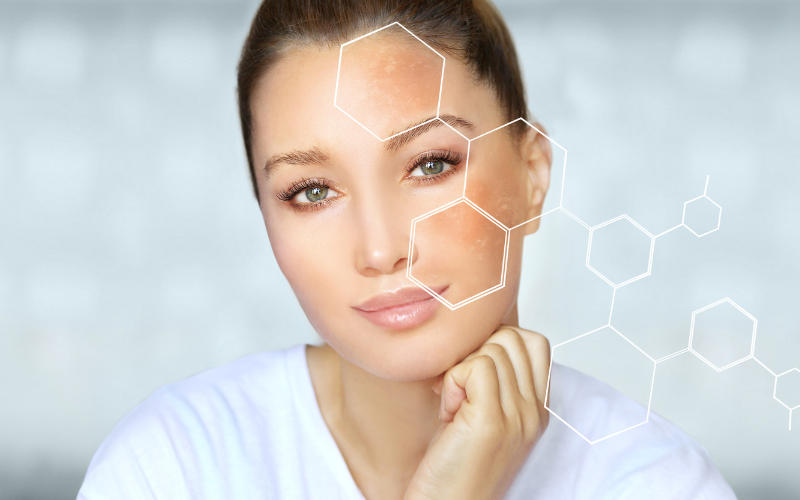
Damaged skin can be a cause of concern for many, whether it’s due to environmental factors, aging, or lifestyle choices. However, with the right approach, it’s possible to repair and rejuvenate your skin. Repairing damaged skin requires a combination of hydration, protection, and consistent care. By adopting a healthy lifestyle, staying hydrated, protecting your skin from the sun, establishing a skincare routine, and getting sufficient sleep, you can effectively restore your skin’s health.
Ways to Heal Skin Damage
In this article, you will explore some essential steps to repair damaged skin and regain a youthful, radiant complexion. To get soft and smooth skin you need to follow these simple steps and stay consistent with the process because these kinds of things take time to heal and show their magic after some time.
1. Hydrate and Moisturize
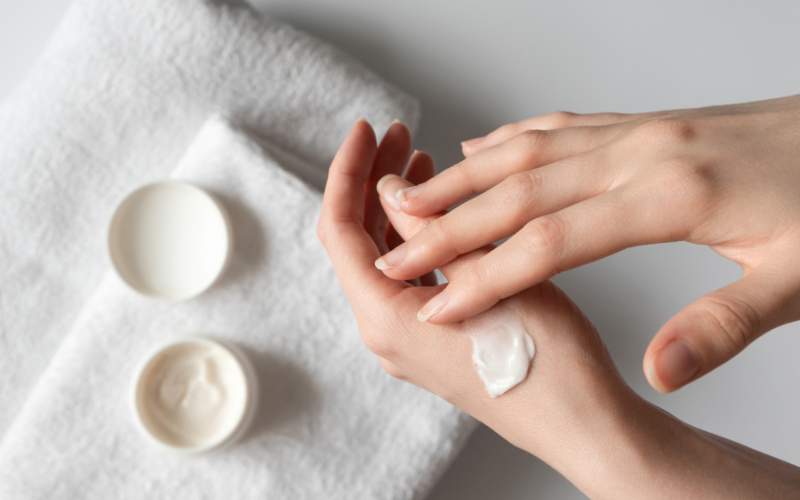
One of the most crucial steps in repairing damaged skin is to keep it adequately hydrated and moisturized. Drinking an ample amount of water throughout the day helps maintain skin hydration from within. Additionally, applying a suitable moisturizer regularly creates a protective barrier, preventing moisture loss and enhancing the skin’s natural healing process. Look for moisturizers with ingredients like hyaluronic acid, ceramides, or glycerin, which help replenish moisture and restore the skin’s natural barrier.
2. Protect from the Sun
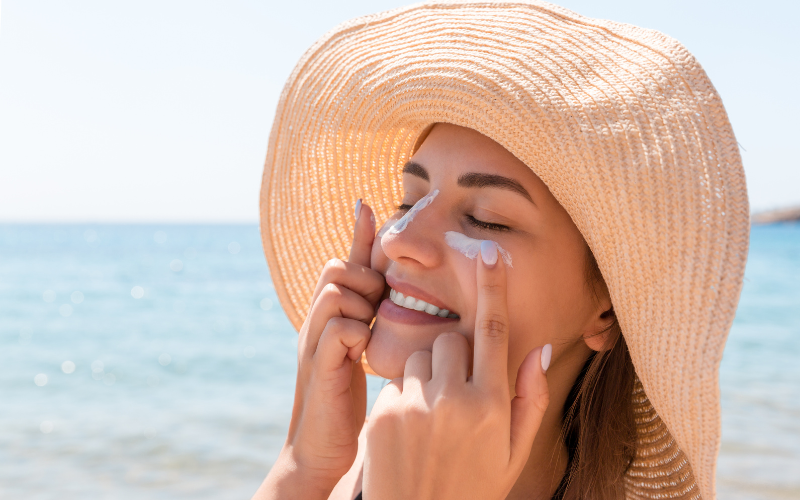
Excessive sun exposure is a leading cause of skin damage, including sunburn, dark spots, and premature aging. Protecting your skin from harmful UV rays is essential for its repair. Make sure to apply a broad-spectrum sunscreen with at least SPF 30 or higher every day, even on cloudy days. Additionally, seek shade, wear protective clothing, and use wide-brimmed hats or sunglasses to further shield your skin from the sun’s damaging effects.
3. Adopt a Healthy Lifestyle

Repairing damaged skin goes beyond external treatments. Adopting a healthy lifestyle can significantly contribute to skin rejuvenation. Eating a balanced diet rich in antioxidants, vitamins, and minerals helps promote overall skin health. Include foods like fruits, vegetables, lean proteins, and healthy fats in your diet. Avoid smoking and excessive alcohol consumption, as they can impair the skin’s natural healing processes and accelerate aging. Regular exercise also improves blood circulation, which nourishes the skin and promotes repair.
4. Establish Skincare Routine
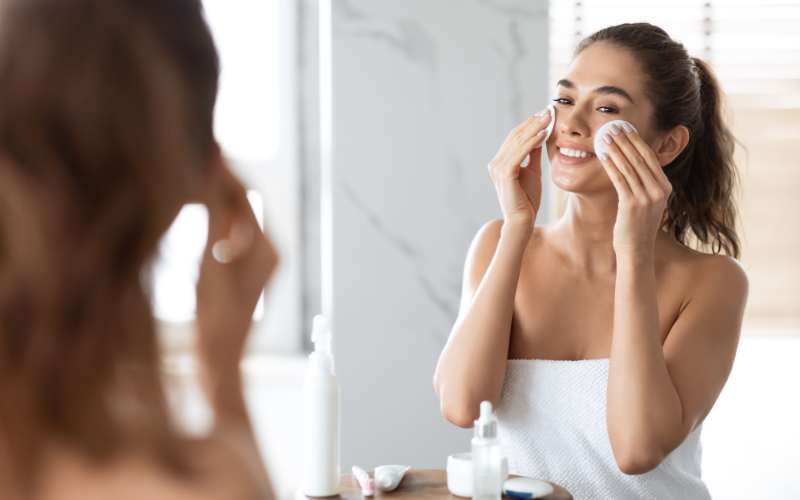
Establishing a consistent skincare routine is essential for repairing damaged skin. Cleanse your face twice a day with a gentle cleanser to remove dirt, excess oil, and impurities. Exfoliate once or twice a week to slough off dead skin cells and promote cell turnover. Use products that contain ingredients such as retinol, vitamin C, or niacinamide, known for their skin-repairing properties. Additionally, consider incorporating targeted treatments like serums or masks into your routine to address specific skin concerns.
5. Get Sufficient Sleep

Adequate sleep is vital for skin repair and rejuvenation. During sleep, your body undergoes a restorative process, including the repair of damaged cells, including skin cells. Lack of sleep can lead to increased stress levels, imbalances in hormone production, and compromised skin health. Aim for 7-8 hours of quality sleep each night to support optimal skin repair and promote a youthful complexion. If you are a person with a very busy schedule then you need to distribute your time and get some time for your health, you need to take 8 hours of sleep daily to keep your skin well maintained.
6. Seek Professional Help:
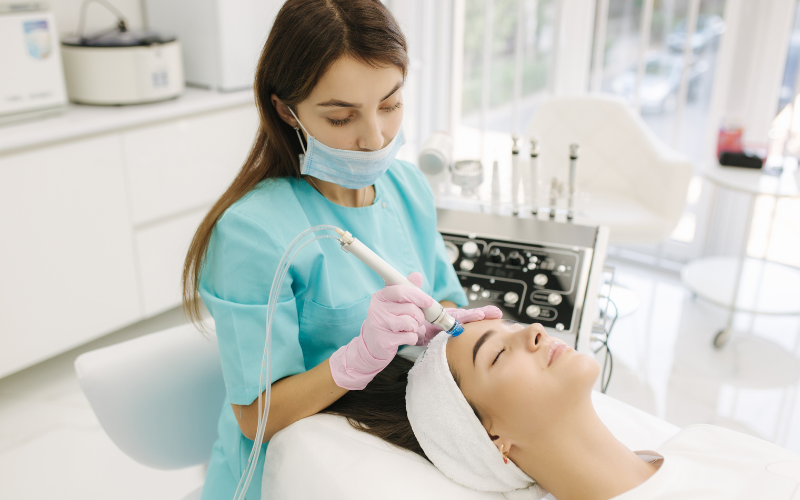
In some cases, repairing damaged skin may require the expertise of a dermatologist or skincare professional. If you’re dealing with severe or persistent skin issues, such as deep scars, hyperpigmentation, or chronic acne, it’s advisable to seek professional help. A dermatologist can assess your skin condition, provide tailored treatment options, and recommend advanced procedures like laser therapy, chemical peels, or microdermabrasion. Their knowledge and experience can significantly enhance the repair process and help you achieve optimal results. Don’t hesitate to consult a professional if you feel that your skin concerns require specialized attention beyond your regular skincare routine.
Bottom Line
In conclusion, repairing damaged skin is a journey that requires commitment and patience, but the results are worth the effort. By following these effective strategies discussed in the above article which are hydration, sun protection, a healthy lifestyle, a skincare routine, and sufficient sleep, you can begin to heal and restore your skin’s health. Remember to stay consistent with your efforts and give your skin time to rejuvenate. With dedication and a holistic approach, you can repair damaged skin, reduce signs of aging, and achieve a vibrant and glowing complexion. Embrace these practices as part of your daily routine and enjoy the benefits of healthier, more radiant skin.
